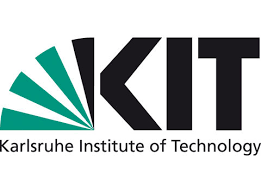Karlsruhe Institute of Technology: Printable adhesive for solar panels
Manufacturing solar modules using printing techniques could speed up the energy transition and reduce costs at the same time. This is made possible with the help of a conductive and printable adhesive that researchers at the Karlsruhe Institute of Technology (KIT) and the company PROTAVIC INTERNATIONAL are bringing to market in a joint project. They have now won the transfer prize at the NEULAND innovation competition.
The special adhesive is designed to greatly simplify the manufacture of photovoltaic modules while reducing energy and material consumption. “Thanks to the new adhesive technology, soldered connections are no longer necessary,” Professor Norbert Willenbacher explains the new process that he and his team at the KIT Institute of Mechanical Process Engineering and Mechanics (MVM) have developed. “The wiring of the solar modules is printed at low temperatures. This is the only way that new cell technologies such as perovskite tandem solar cells can be produced on a large scale with higher efficiency.” The technology also has great potential elsewhere: “Think of the production of electronic devices such as smartphones or notebooks. Here, too, our adhesive will lead to significant savings in raw materials,” says Willenbacher.
The best innovations from KIT
In addition to the special adhesive, a molecular printer and the Aerobuster air purification concept were also awarded a transfer prize in the NEULAND innovation competition. The latter is a technology for sterilizing aerosol-containing air using UV radiation, which can be used in air purifiers to remove corona viruses. The FastCast spin-off, which developed a process for the production of porous high-performance ceramics, was awarded the Idea Prize. With an innovative concept, the investment casting process is to be accelerated by 70 percent and the ecological footprint reduced at the same time. Other idea prizes went to a process for producing green methanol and a technology for self-healing fuel cells. A team from KIT received the special prize “Best of 10 years of innovation competition” for the development of methods for reducing pharmaceuticals in animal breeding with the international company Cargill.

